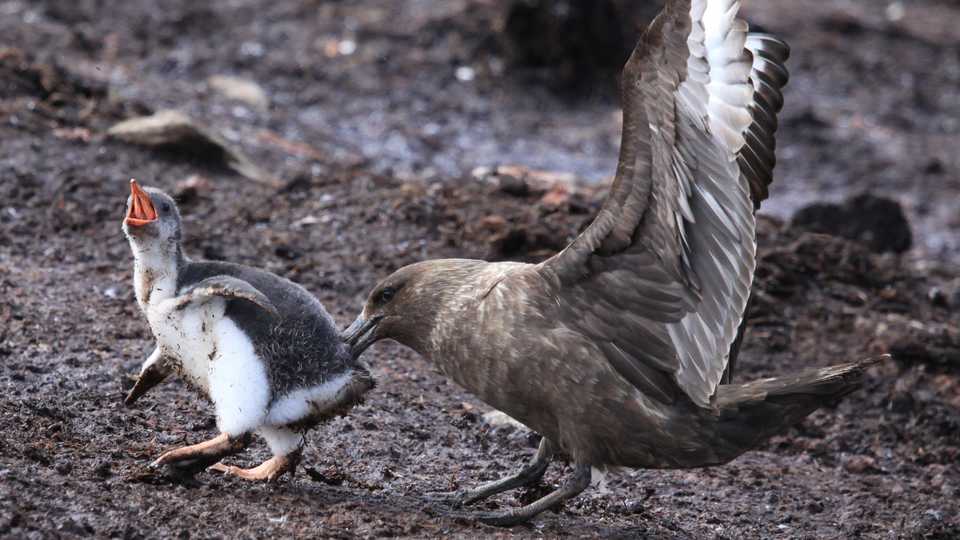Science News
Birdbrained Skuas

The brown skua is fierce and smart. Living in Antarctica may have something to do with it. They are known to take food from other birds or even steal breast milk from nursing elephant seals. But researchers didn’t realize just how smart the birds were until skuas started attacking Korean researcher Yeong-Deok Han’s head. “I had to defend myself against the skuas’ attack. When I was with other researchers, the birds flew over me and tried to hit me. Even when I changed my field clothes, they followed me. The birds seemed to know me no matter what I wear.”
Unlike his untouched colleagues, Han studied the skuas’ nests to measure their eggs and nestlings. He had a hunch that the skuas actually recognized and targeted him for messing with their nests. So he conducted further experiments. The team sent a pair of humans dressed exactly alike to the seven skua nesting sites: one had intruded on the nests previously, while the other (a neutral human) had never been to the nests before. As they approached the nests, they split up and walked in opposite directions. All seven skua pairs followed and tried to attack the nest intruder—but never the neutral human. (You can see a video of these pairs, and the birds’ attacks, here.)
While we know of other people-recognizing birds—including crows, magpies, and mockingbirds—these birds often live in areas densely populated by humans. In other words, we’ve been part of their daily lives for decades. But these skuas are isolated on a remote island in the Antarctic. “It is amazing that brown skuas, which evolved and lived in human-free habitats, recognized individual humans just after three or four visits. It seems that they have very high levels of cognitive abilities,” says researcher Won Young Lee, lead author on the team’s study, published last month. Perhaps the skuas’ opportunistic feeding habits make them cleverer with time, the researchers say. “Since this area has been inhabited by humans only after the Antarctic research stations were installed,” Lee says, “we think that the skuas could acquire the discriminatory abilities during a short-term period of living near humans.”
Perhaps it’s time to stop using “birdbrain” as a disparaging term!
Image: Liam Quinn/Wikipedia